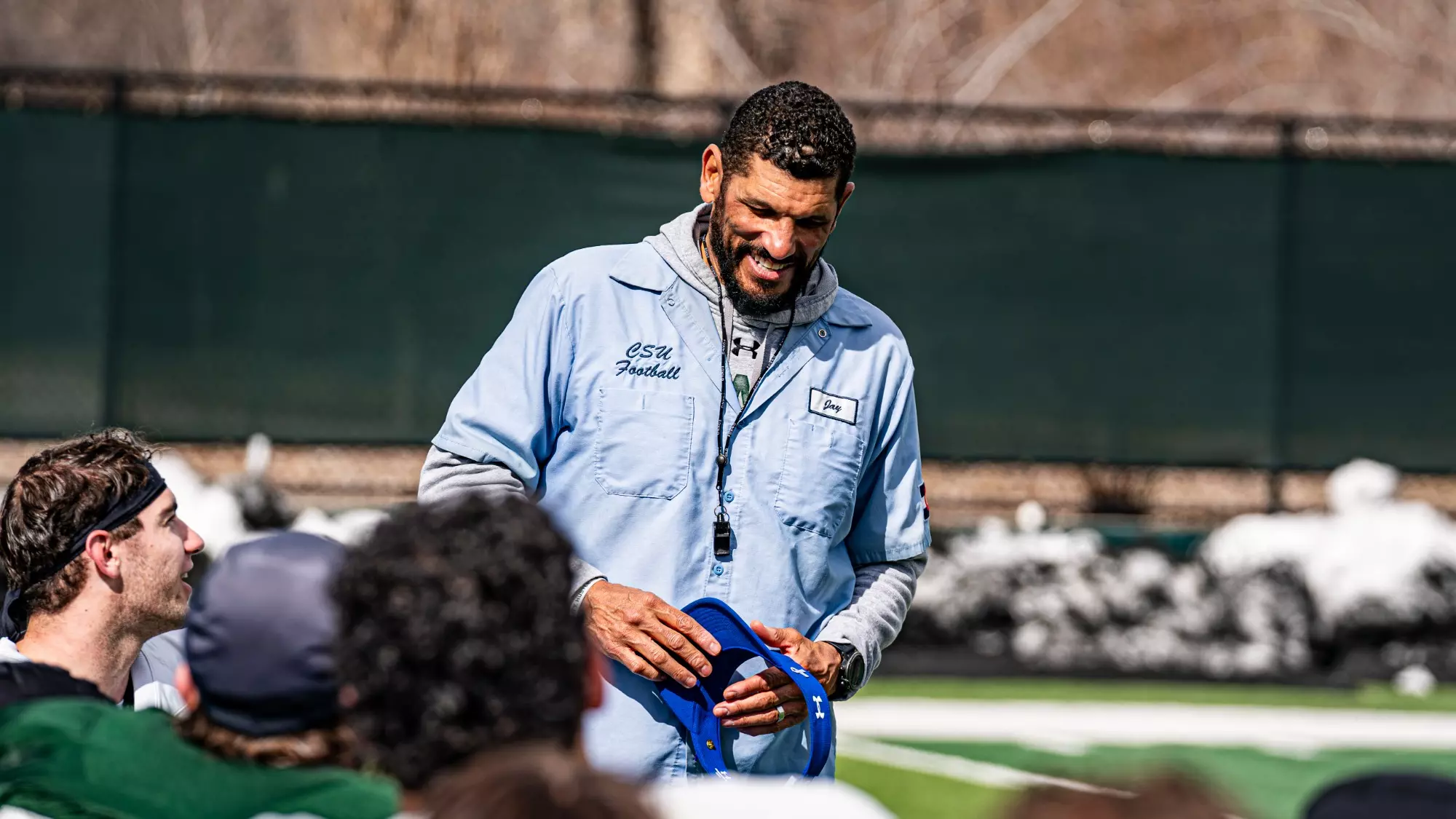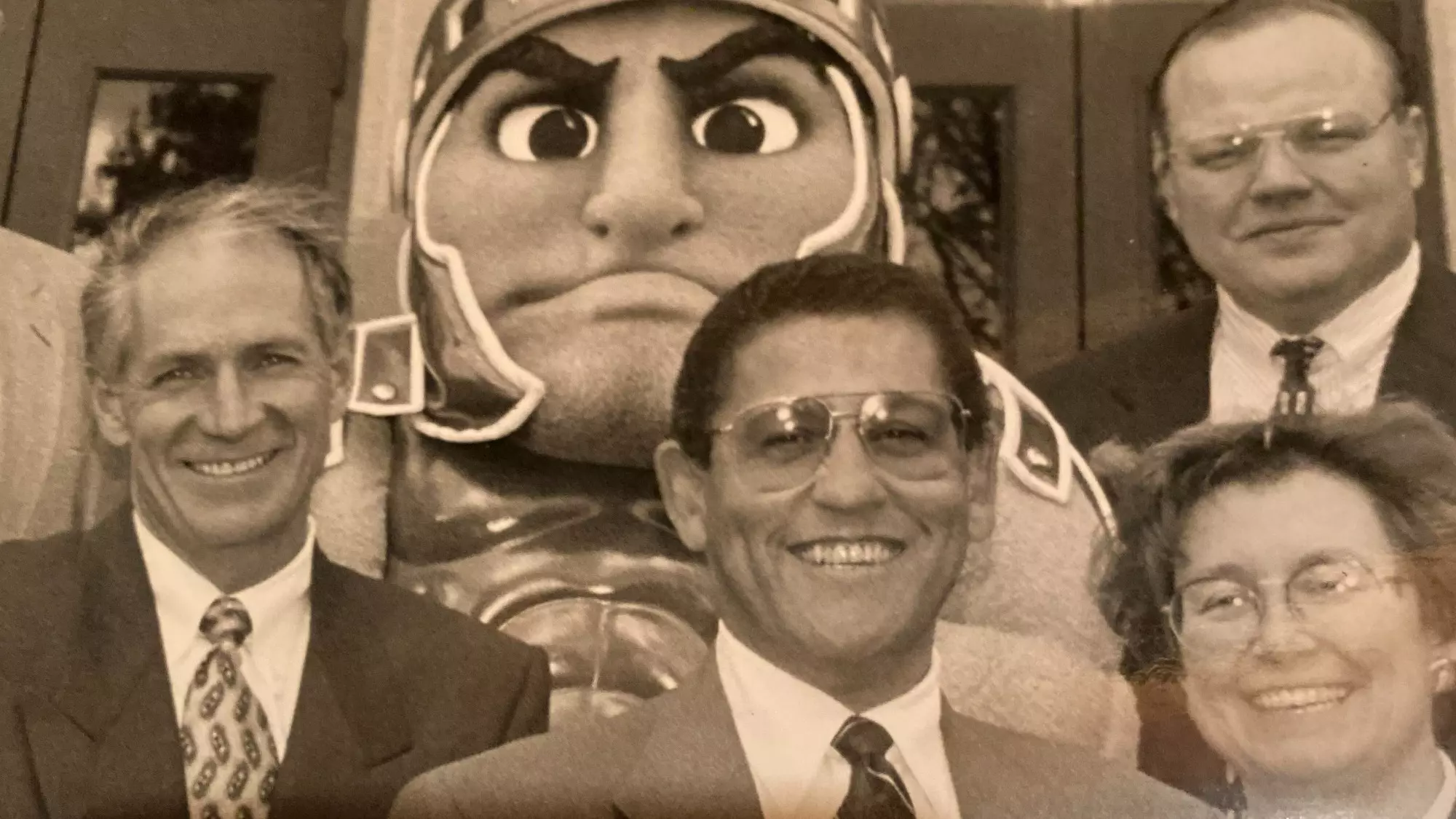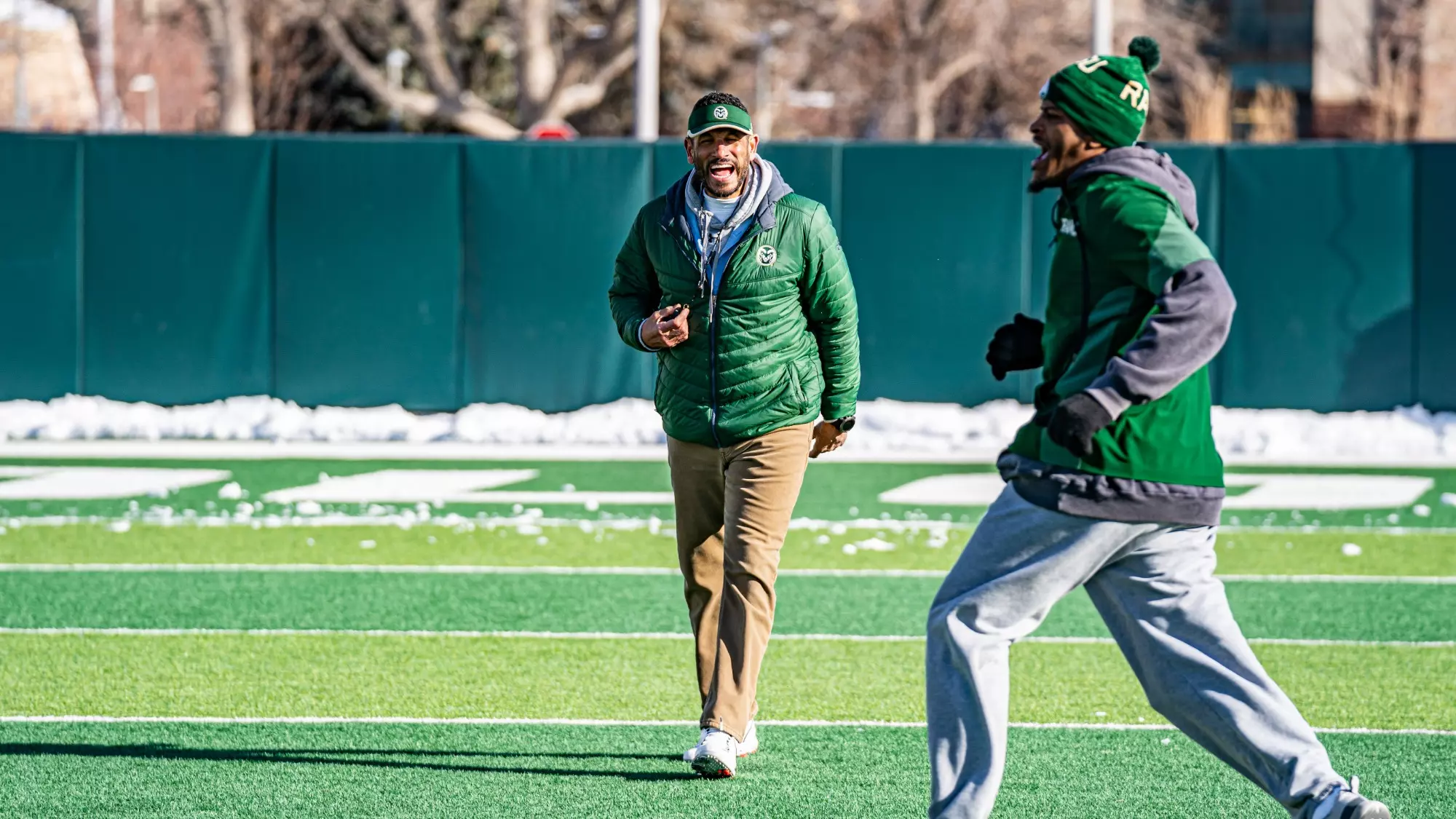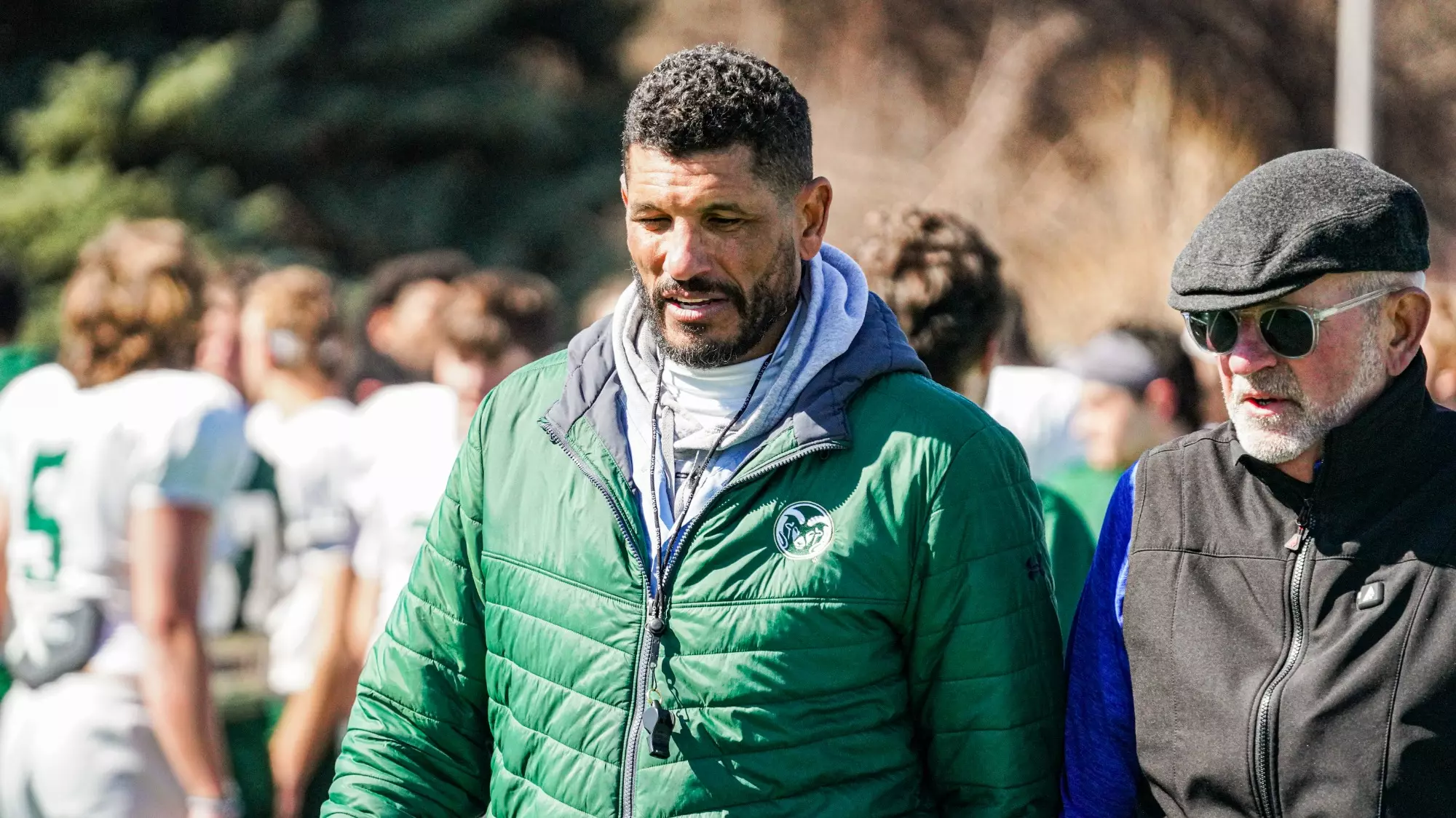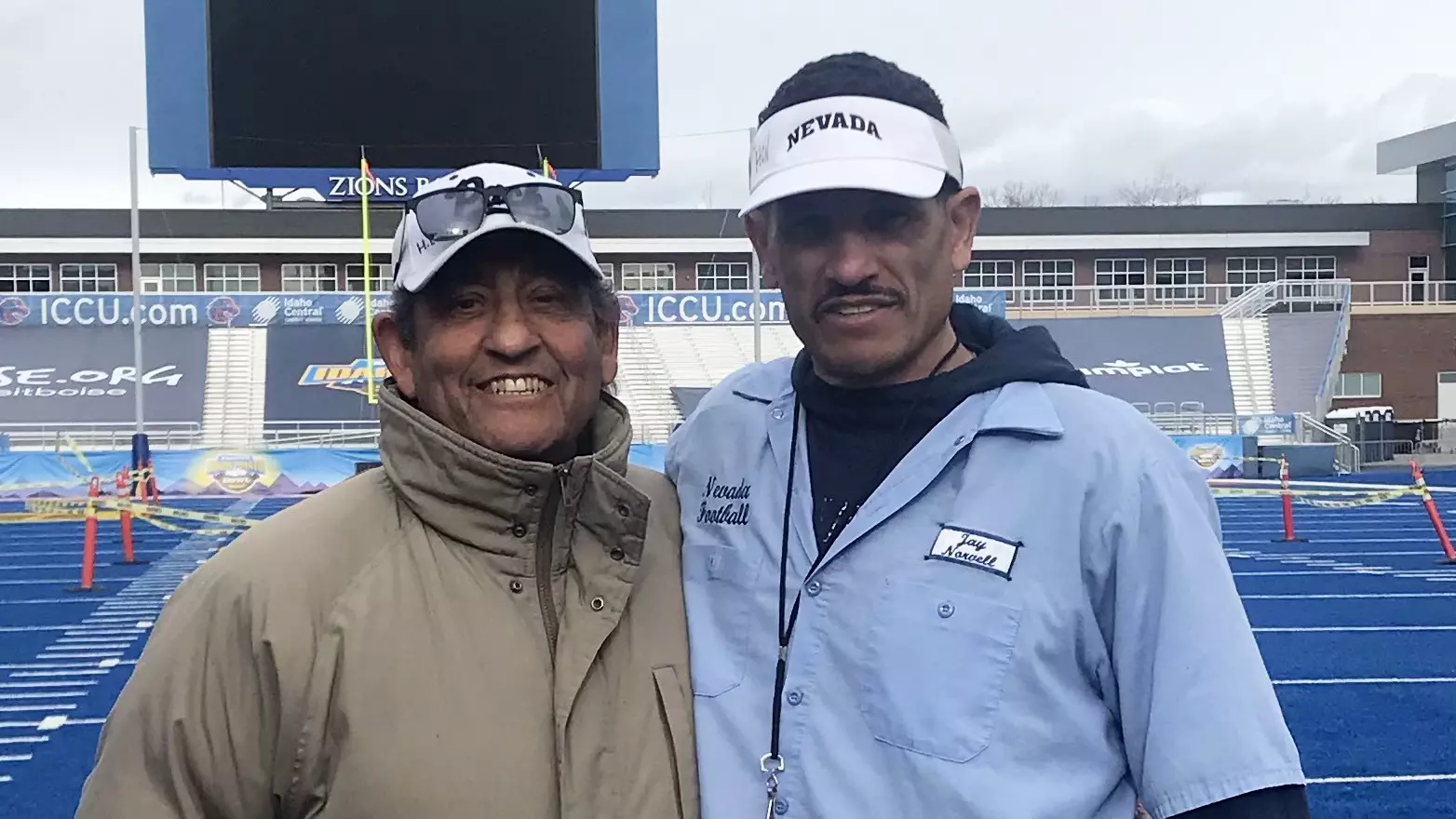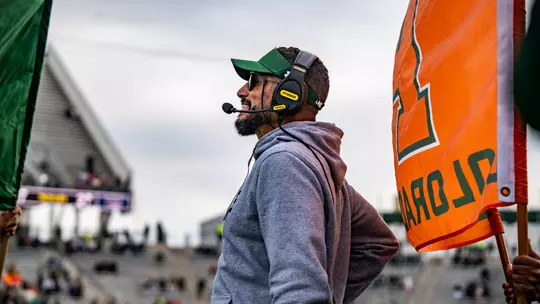
Paying it Forward Like He was Taught
Norvell creates Minority Fellowship in honor of his father
Mike Brohard
Not too long ago, a former assistant sent Jay Norvell a text of thanks. For the opportunity to join his staff, to learn and grow. He told Norvell the opportunity had changed his life.
Colorado State’s football coach responded in kind, naturally, but also attached a message: Pay it back by doing it for somebody else.
This is what he knows. This is what he watched his father do his entire life, and now in his third season as the Rams’ coach, he’s going to do it again in a much more personal way and honor his father, Merritt Norvell, in the process.
Jay and his wife, Kim, will fund the Dr. Merritt Norvell Minority Fellowship with the football program, beginning this year. He will cover the salary and all benefits for a young coach looking to gain experience for an entire season.
“That’s the hardest thing. There are so many limited spots for young coaches,” Jay said, just about the midpoint of the Rams’ spring camp. “We have four graduate assistant positions. He have three analyst positions. It’s hard for guys to get started. A lot of guys want to get started, they just don’t have the opportunity, and I have to tell former players every year we don’t’ have anything. This is another way to create an opportunity for somebody.
“My father really had a heart for community, and he had a heart for helping people. Basically, I have spent my life trying to fill his shoes, like many sons do. It’s a way to honor him in giving back. This does mean a lot to me to be able to honor my dad and all the great things he did for so many people.”
His father wore multiple hat throughout his life. He was an all-conference football player at Wisconsin, appearing in two Rose Bowls. Merritt graduated with all of his degrees from there, including a master’s and a doctorate. He did social work, and he entered the business sector at IBM.
He then ventured into athletics, becoming the first Black athletic director at Michigan State, the Spartans winning national championships in basketball and hockey during his tenure. No matter what he was doing professionally, he was always tied to making his community better. He was a leader in the Urban League and worked for the NAACP.
He founded the NCAA Minority Development Program, the concept being to train experienced assistants to become head coaches. Jay was part of the program. So were James Franklin, David Shaw and Mike Locksley. Merritt was also the executive director for the National Association of Coaching Equity and Development with a quest to provide more opportunities for minority coaches.
Jay also took part in the Bill Walsh minority program in the NFL, which is limited to a few weeks during camp. He found out recently when talking to Indianapolis Colts general manager Chris Ballard that former coach Tony Dungy had created a minority fellowship with the organization, which put his mind in motion.
He immediately told Tim Cassidy – Jay’s chief of staff – he wanted to do the same thing.
Cassidy met Merritt for the first time in 2004, the same time he met Jay at Nebraska. It didn’t take long to understand the drive behind either of the men, or why the son was so willing to follow his father’s lead.
“They are really good people, and there’s probably not a day that goes by where I don’t tell Coach how proud his dad would be of him. Not only what he’s doing with the minority fellowship, but what he does with these young men every day,” Cassidy said. “He and I are both blessed to have had two great parents each, and knowing his mom and dad and him, I can see why he is the way he is. For us, Coach is not only trying to help young coaches get opportunities, but he’s also about helping our football players.
“We’re in a business where it’s important to win a lot of football games, and I know that’s important to him, but you can tell by his actions he’s really more about trying to help these young men become men. I think that’s a reflection of what he came from, having the parents he had with Merritt and Cynthia. They would be thrilled.”
The future is our young coaches. Anything I can do to help to pay back the opportunities to pay back what I got I’ll do that.Jay Norvell
Jay’s path to becoming a head coach took some time, longer than his resume would have suggested. After his first stint in the NFL, he applied for a head job for the first time and was a finalist at Bowling Green. Urban Meyer was hired.
It would take 16 more years and dozens of interviews before Nevada hired him in 2017. He had been an offensive coordinator at Nebraska, UCLA and Oklahoma, places where coordinators are groomed and quickly become leaders of programs.
In FBS, there are currently 15 Black head coaches, or 11 percent of the field.
Jay does wonder why it took so long. He’s also out to break a few trends he’s seen along the way. As an All-Big 10 defensive back at Iowa, Jay gravitated to the offensive side of the ball, where he saw few minority offensive coordinators and even fewer Black quarterback’s coaches. He noted it took awhile for Black quarterbacks to become a norm, but the positional coaches are still catching up.
It was another layer in the impetus to create the fellowship.
“I think the other thing is there are very few opportunities, especially on offense, for minority coaches to get an opportunity to work in a leadership position. One of the reasons I gravitated to offense is because to become a head coach, you have to be in control of the whole game and understand when to run the football, when to control the clock, when to take timeouts,” Jay said. “I worked really hard to get myself in those positions over the years.
“It’s important and it has to be intentional. If you look at the NFL, the majority of head coaches are guys who were quarterbacks coaches, who have called plays and are offensive minds.”
The past year, the team has had Aaron Moore working as a student coach. He came to Colorado State to play linebacker, but two seasons of injuries forced him to medically retire. Even though it was the previous staff which recruited him, he said the current group proved to him they were concerned with the person as much as the player. He said they were there for him through recovery and made sure he had a plan in place for life after playing. When he told them he wanted to get into coaching, they gave him a shot and have since given him increased responsibility.
Next year, he will remain with the team as a graduate assistant. He wants to coach, and when he sees Jay creating an opportunity for minority coaches, it tells him his read on the man was entirely accurate.
“I think it really says a lot about Coach Norvell and the culture we’re really trying to build at CSU. He’s a guy who practices what he preaches,” Moore said. “He’s a guy who’s always trying to find ways he can give back to the program. Especially this being a minority position, I think it’s great because people of color, all races, sometimes it’s hard to get a foot in the door. Coach Norvell is really putting his hand out and helping other minority coaches the way he was helped. I think it helps pay it forward. As more minority coaches come in every day, it’s great representation for the African-American community.
“I think it’s a great thing he’s doing. I mean, 11 percent, him being one of them, he’s striving to get other minority coaches a foot in the door.”
Jay has made the commitment to make the position available for as long as he is a head coach. It will last for a full season with complete access to every part of the program. Every coach will take a hand in providing a full look at the coaching profession, and at the end, the experience necessary to take the next step.
There were opportunities for him coming up. Not to this extent, but they helped. Now he’s going to help others.
“It’s just a small way really, but that’s the only way you can make a change is in your world with the people you touch. Maybe some other coaches will see this, and they’ll think about doing a similar thing,” Jay said. “The future is our young coaches. Anything I can do to help to pay back the opportunities to pay back what I got I’ll do that.”
He’s already talking to others to plant the seed. Timmy Chang at Hawaii, for one.
It was the way Jay watched his father move the needle for years. Talk becoming action. With the fellowship he can pay it forward for others while honoring the man who provided him the most positive examples of exactly how.

